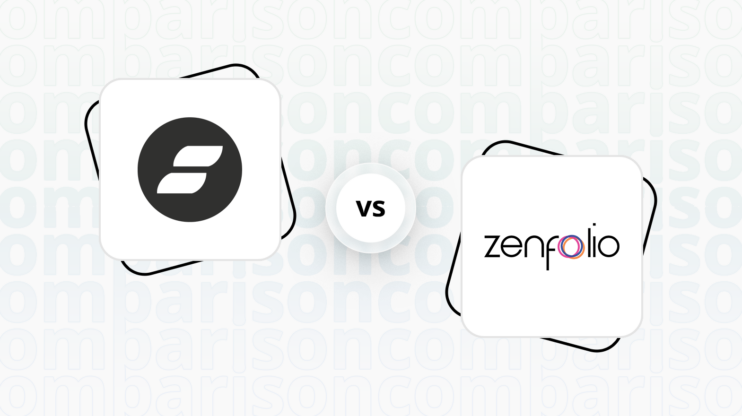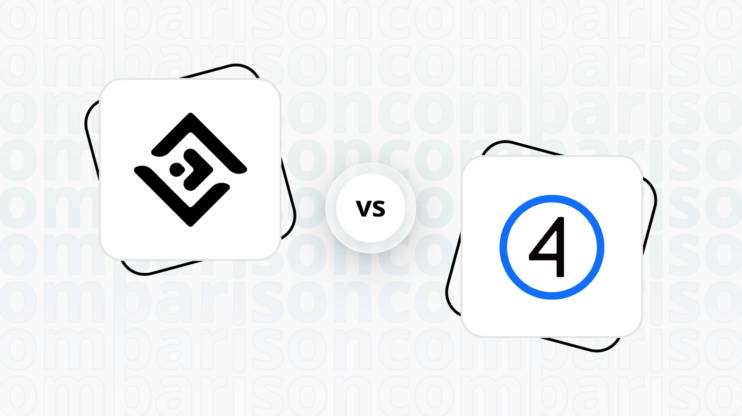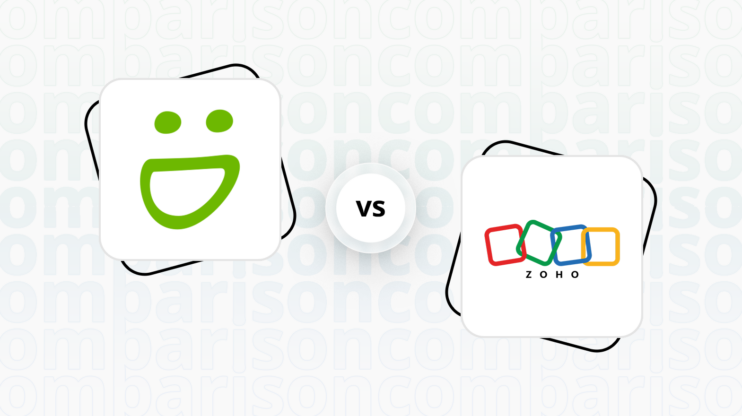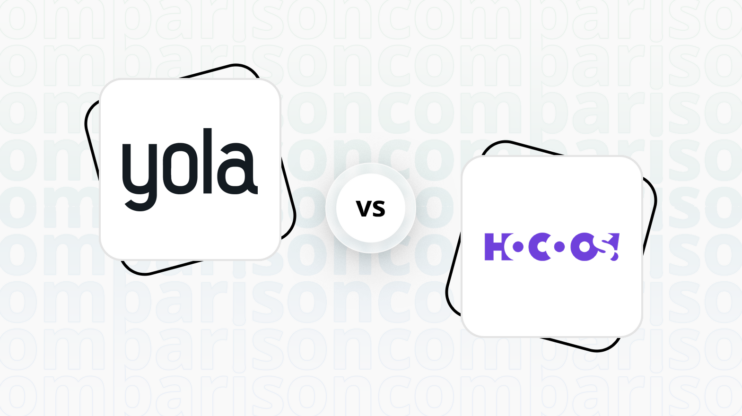Final verdict
BlueHost and Sellfy both offer unique strengths, but they cater to different user needs.
-
BlueHost (Overall Grade: 6.8/10)
is a versatile platform that combines web hosting with a user-friendly website builder. It integrates seamlessly with WordPress, offering extensive customization options and access to thousands of themes and plugins. BlueHost excels in design functionalities, ease of use, and security, making it a solid choice for users looking to create professional websites with robust hosting support. When comparing BlueHost vs Sellfy, BlueHost stands out for its comprehensive features and strong customer support. -
Sellfy (Overall Grade: 6.0/10)
is tailored for creators looking to sell a variety of products, including digital, physical, and subscription-based items. It offers a simple, user-friendly interface that allows for quick setup of an online store without advanced technical skills. Sellfy shines in its ecommerce capabilities and product testing options, making it ideal for users who prioritize ease of selling and marketing tools. In the BlueHost vs Sellfy comparison, Sellfy is a great choice for creators seeking a straightforward ecommerce solution.

|

|
|
|---|---|---|
|
Design functionalities & templates |
7.2 |
5.2 |
|
Ease of use |
8.2 |
7.8 |
|
Ecommerce |
6.8 |
6.8 |
|
Website Editors |
7.3 |
6.8 |
|
Product testing options |
6.2 |
7.3 |
|
Price |
7.2 |
7.9 |
|
Hosting quality |
8.0 |
7.3 |
|
Website speed optimization |
6.5 |
5.4 |
|
Plugins and integrations |
9.1 |
6.7 |
|
Marketing features |
7.3 |
7.1 |
|
Customer support |
7.6 |
5.8 |
|
Security |
8.3 |
7.2 |
|
AI capabilities |
1.5 |
0 |
|
User Management |
4.4 |
2.0 |
Best for ecommerce
 6.8
6.8
 6.8
6.8
Verdict
: BlueHost and Sellfy both score 6.8 in ecommerce, but they cater to different needs. BlueHost is ideal for users familiar with WordPress and WooCommerce, offering a comprehensive set of ecommerce features. Sellfy is perfect for creators looking for a simple, user-friendly platform to sell a variety of products.
-
BlueHost
: BlueHost’s integration with WordPress and WooCommerce makes it a versatile option for users who need a comprehensive set of ecommerce features. It offers robust customization for product pages, secure payment gateways, and inventory management. However, it may require some familiarity with WordPress to fully utilize its capabilities. -
Sellfy
: Sellfy is tailored for creators and offers a straightforward ecommerce solution. It supports a wide range of products, including digital goods, physical products, and subscriptions. With its user-friendly interface and integration with Stripe and PayPal, Sellfy is ideal for those looking to set up an online store quickly and efficiently.
Best for informational & business websites
 7.5
7.5
 5.7
5.7
Verdict
: BlueHost is the superior choice for informational business websites, offering a more comprehensive set of tools and features compared to Sellfy.
-
BlueHost
: BlueHost excels in providing a versatile and user-friendly platform for creating professional-looking informational websites. Its seamless integration with WordPress allows for extensive customization and access to thousands of themes and plugins. The drag-and-drop interface makes it accessible for users with little to no coding experience. With a score of 7.5, BlueHost is well-suited for a wide range of informational business needs, from personal blogs to large online businesses. -
Sellfy
: While Sellfy is primarily an eCommerce platform tailored for creators, it can also be used for informational websites. However, its focus on simplifying the eCommerce process means it lacks some of the advanced customization options available with BlueHost. With a score of 5.7, Sellfy is better suited for users who prioritize ease of use and quick setup over extensive design and customization capabilities. When comparing BlueHost vs Sellfy, BlueHost’s robust features make it the better choice for informational business websites.
Detailed comparison
Design functionalities & templates
Design FunctionalitiesRepresents how well each platform allows for creative design and customization of websites.Score Components:
- Template Variety (30%): Range and quality of design templates.
- Customization (30%): Flexibility and options for design alterations.
- User Interface (20%): Ease and intuitiveness of the design process.
- Responsiveness (10%): Adaptability to different devices and screen sizes.
- Innovation (10%): Unique design features and tools.
 7.2
7.2
 5.2
5.2
🏆
Winner: BlueHost.
If you’re looking for a platform that offers more variety in templates and designs, more creative design possibilities, and more free and premium templates and designs, BlueHost is the preferred choice.
BlueHost’s WordPress website builder offers over 300 pre-installed templates and designs to cater to the diverse needs of its users, ensuring that there’s something for everyone, regardless of the niche or industry. With hundreds of customizable templates available, users can easily find a design that aligns with their vision and brand identity. These templates are designed to be responsive and SEO-friendly, enhancing the user experience and visibility of the websites. From simple blog layouts to complex ecommerce designs, BlueHost provides a comprehensive selection to help users create professional-looking websites with ease.
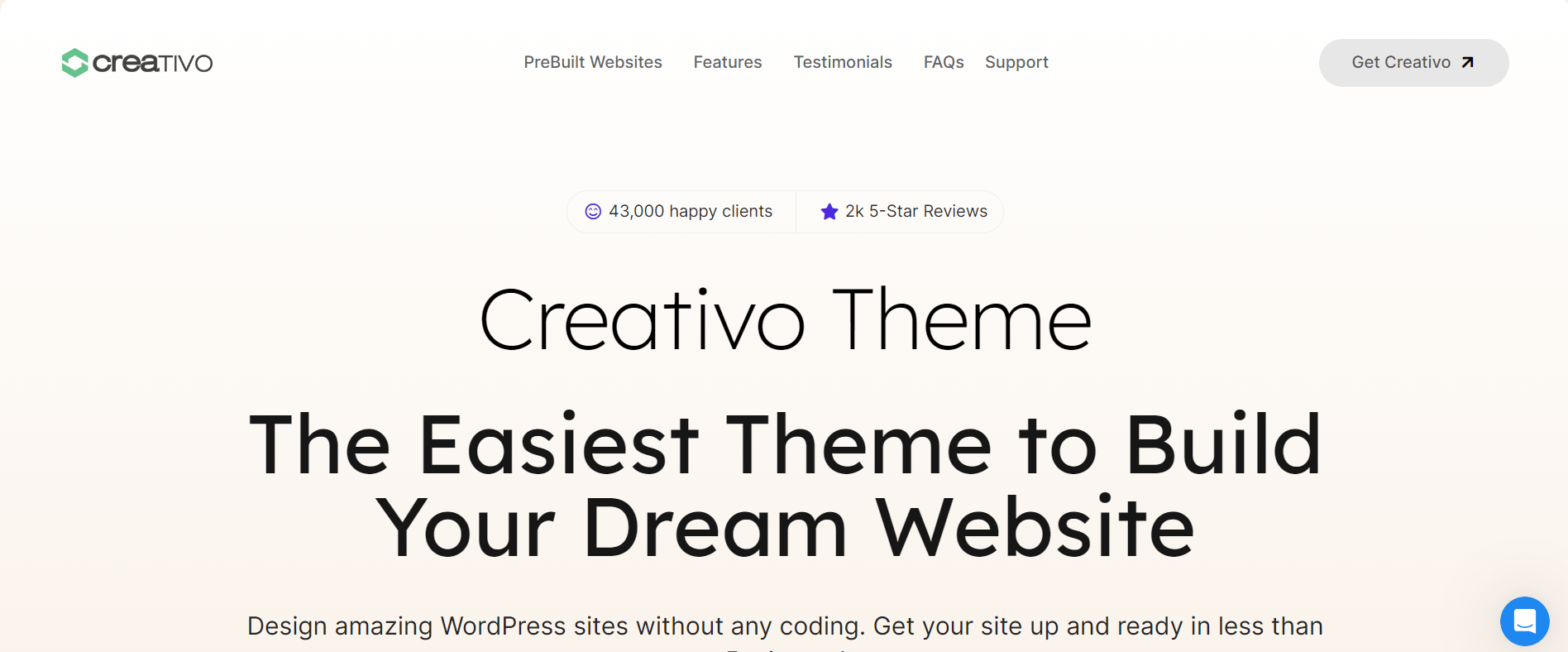
Compared to BlueHost, Sellfy provides a collection of design templates through its theme store, located in the Store Customizer. Users have the option to preview these themes before applying them to their websites. As of the latest information, Sellfy offers five main theme options: Lumi\u00e9re, Noir, Savant, Id\u00e9e, and Mode. These themes cater to various aesthetic preferences and can be published to go live on a user’s website after selection and customization\u200b\u200b.
Get a head start on website creation with AI
Create a custom website tailored to your business needs 10X faster with 10Web AI Website Builder!
Ease of use
Ease of useReflects the platform’s overall user-friendliness.Score
Components:
- Learning curve (40%): Quickness and ease of getting started.
- Interface design (30%): Simplicity and intuitiveness of layout.
- User guidance (20%): Quality of tutorials and support.
- Flexibility (10%): Adaptability to various user skills.
 8.2
8.2
 7.8
7.8
🏆 Winner: BlueHost
. Scoring 8.2, BlueHost stands out for its user-friendly interface and simplicity, making it highly accessible for users of all skill levels. Sellfy, with a score of 7.8, offers a straightforward website builder but has some limitations in customization. If ease of use is a priority, BlueHost is the clear winner in this category.
Learning Resources
🏆 Winner: BlueHost
. While both platforms offer solid learning resources, BlueHost goes a step further with its wide array of detailed tutorials and active community forums, making it easier for users to learn and adapt.
For ecommerce
EcommerceMeasures the platform’s effectiveness in supporting online business activities.Score Components:
- Ecommerce themes and templates (20%): Variety and design of templates.
- Product management (25%): Ease of managing and organizing products.
- Payment options (25%): Variety and convenience of payment methods.
- Ecommerce features (20%): Features for managing an ecommerce store.
- Integration (10%): Compatibility with external e-commerce tools and services.
 6.8
6.8
 6.8
6.8
Both BlueHost and Sellfy score 6.8 in the ecommerce sector, indicating similar capabilities. However, their offerings differ in several aspects.

|

|
|
|---|---|---|
|
Ecommerce themes and templates |
6.5 |
7.0 |
|
Product page customization |
7.0 |
6.5 |
|
Payment processing and commissions |
6.8 |
8.0 |
|
POS capabilities |
0.0 |
4.0 |
|
Payment gateways |
7.5 |
6.0 |
|
Product numbers |
6.0 |
7.5 |
|
Additional ecommerce features |
6.5 |
6.5 |
BlueHost ecommerce features:
- Product Listings
- Shopping Carts
- Secure Payment gateways
- Shipping Options and Tax Calculations
- Inventory Management
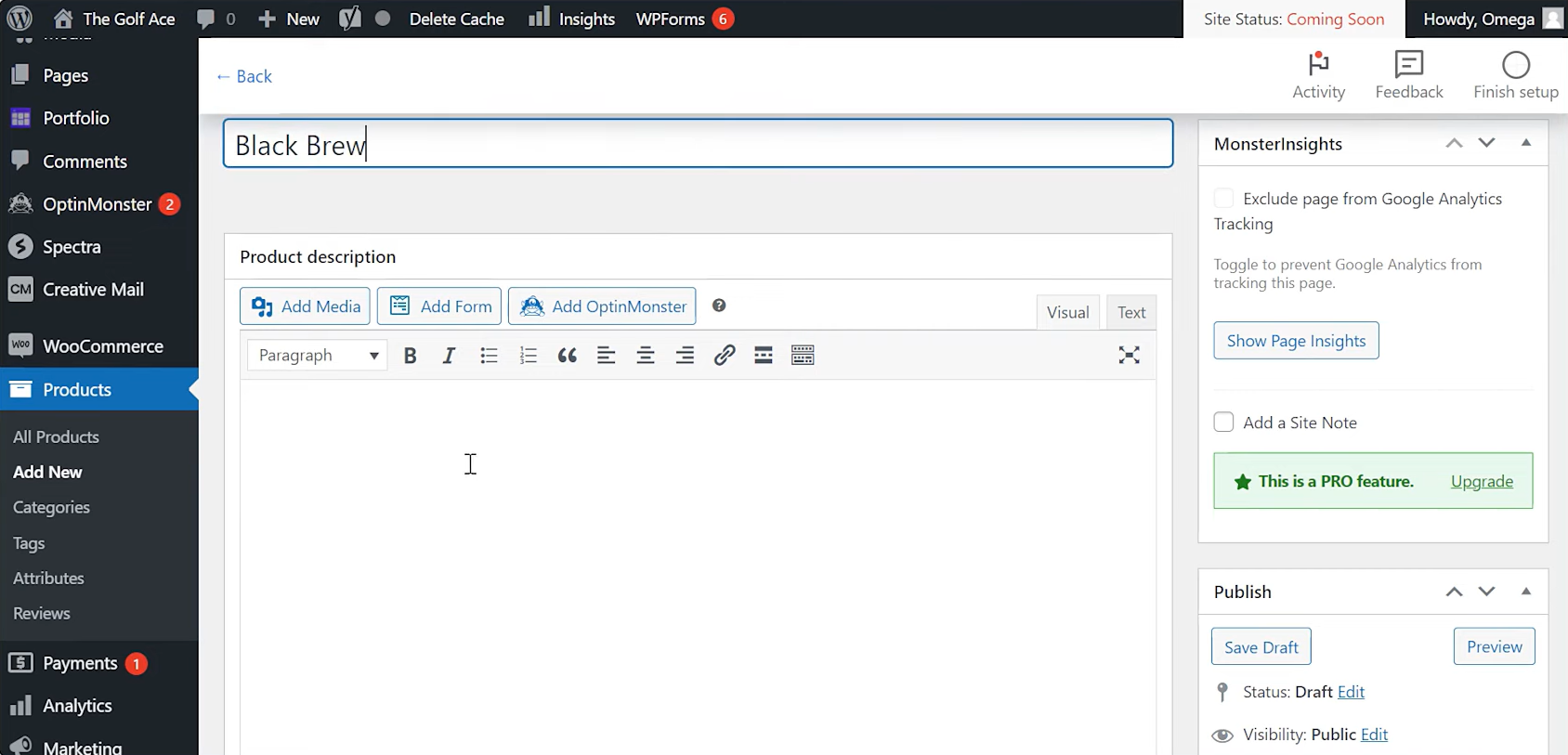
Sellfy ecommerce features:
- Product Listings
- Payment Gateways integration
- Product categories
Ecommerce themes & templates
BlueHost’s website builder for eCommerce provides a selection of specific templates designed to streamline the creation of online stores. These templates are optimized for sales, featuring designs that accommodate product galleries, shopping carts, and checkout processes. However, the customization options might be limited compared to more specialized eCommerce platforms. On the other hand, all the templates of Sellfy are designed for online stores, making it a more focused platform for ecommerce.
Product page customization
BlueHost’s website builder offers robust customization features for product pages, allowing users to tailor product details like titles, descriptions, images, and pricing according to their preferences. It supports the creation of product variants and options, facilitating the sale of items with multiple choices such as size, color, and material directly from the product page. Sellfy supports a diverse range of products including digital goods like music, videos, ebooks, and software, as well as physical products and print-on-demand merchandise such as t-shirts and mugs. The platform enables the sale of subscriptions, offering a means for recurring revenue.
Payment processing
BlueHost doesn’t directly support numerous payment gateways. However, it does integrate with WooCommerce, a platform that facilitates integration with various payment gateways like PayPal and Stripe. While BlueHost doesn’t impose transaction fees, the payment gateways might. Sellfy supports two primary payment gateways, Stripe and PayPal, allowing for various payment options including credit/debit cards and localized payment methods in Europe. The platform does not charge transaction fees beyond its subscription cost, though payment processors’ standard fees apply.
In conclusion, while both platforms offer similar ecommerce capabilities, BlueHost may be more suitable for users who require a comprehensive set of ecommerce features and are familiar with WordPress and WooCommerce. Sellfy, on the other hand, may be a better choice for creators looking for a user-friendly platform to sell a wide array of products.
Website Editors
Website EditorsEvaluates the platforms’ website building and editing capabilities.Score Components:
- Customization tools (40%): Range and power of editing features.
- Editor usability (30%): User experience within the editor.
- Design flexibility (20%): Freedom in layout and design changes.
- Update and maintenance ease (10%): Simplicity of updating and maintaining the site.
 7.3
7.3
 6.8
6.8
🏆
Winner: BlueHost
. BlueHost, with a score of 7.3, offers a user-friendly website builder that integrates seamlessly with WordPress, allowing for a wide range of customization options and access to thousands of themes and plugins. It features a drag-and-drop interface, making it accessible for users with little to no coding experience.
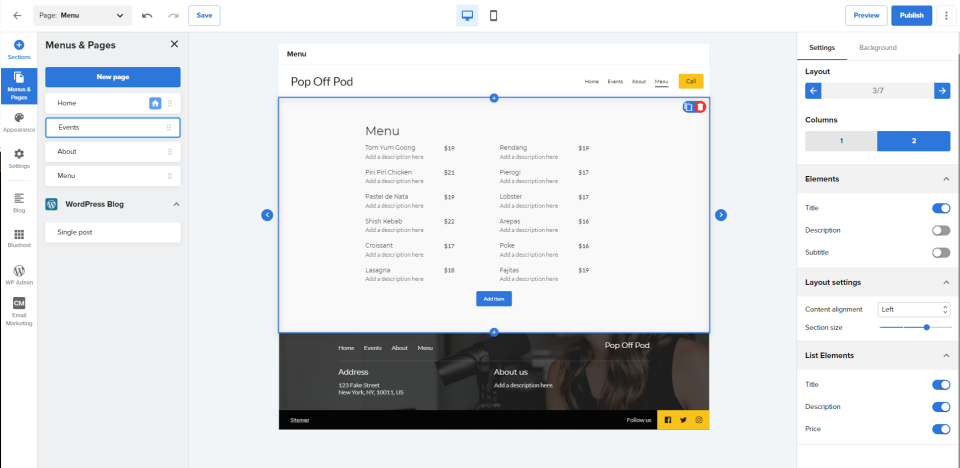
Sellfy’s editor, scoring 6.8, offers a straightforward and user-friendly platform for creating online stores, focusing on simplicity over advanced customization. It supports the sale of digital, physical, subscription-based, and print-on-demand products, alongside integrated marketing tools for promotion and sales optimization.
Mobile editor/app
 5.0
5.0
 7.5
7.5
🏆
Winner: Sellfy
. Both BlueHost and Sellfy offer mobile capabilities for managing your website, but they cater to different needs and skill levels. BlueHost does not have a dedicated mobile editor app, but allows for some editing on a mobile browser. This could be limiting for users who prefer to manage their website on the go.
Sellfy, on the other hand, has a mobile app that allows store owners to manage their online stores on the go. It offers functionalities such as viewing store performance metrics, managing and tracking orders, and receiving customized notifications. Users can also access summary reports of their store’s performance on a daily, weekly, or monthly basis. However, it’s not possible to change the layout or the design of the website itself.
In summary, Sellfy receives a higher rating due to its comprehensive mobile app, while BlueHost may be better suited for users who prefer to manage their website from a desktop.
Product testing options
Product Testing OptionsAssesses the options for trying out platform features before commitment.Score Components:
- Trial quality (40%): Extent and usefulness of the trial or free version.
- Feature accessibility (30%): How many features are available to test.
- Trial duration (20%): Length of the trial period.
- Ease of transition (10%): Smoothness of moving from trial to paid plans.
 6.2
6.2
 7.3
7.3
Overall Result
:
Sellfy Wins
. Sellfy scores 7.3 in product testing options, slightly higher than BlueHost’s 6.2. Both platforms offer a 30-day money-back guarantee, but Sellfy stands out with a 14-day free trial, during which users can test premium features. BlueHost, on the other hand, does not offer a free or trial version, but allows testing of premium features within the 30-day refundable period.

|

|
|
|---|---|---|
|
Free Plan |
No | No |
|
Trial Duration |
No |
14 days |
|
Testing Premium Features |
Within 30-day refundable period |
During the free trial |
Price
PriceLooks at the cost-effectiveness and value for money of each platform.Score Components:
- Plan value (40%): What each pricing tier offers.
- Transparency and clarity (30%): Clearness of pricing structures.
- Flexibility of plans (20%): Range of options to suit different budgets.
- Hidden costs (10%): Additional expenses not included in the plan.
 7.2
7.2
 7.9
7.9
BlueHost and Sellfy have similar pricing scores, with Sellfy slightly ahead.
Both platforms offer discounts for annual subscriptions, with BlueHost offering a significantly higher discount. Neither platform has an enterprise plan.

|

|
|
|---|---|---|
|
$10-$20 |
Basic ($15.99/month): Made for a simple website or blog, 1 website with 10GB SSD storage, Free CDN, Free Domain 1st year, Managed WordPress Hosting, Free SSL 1st year and Chat Support. Value for price: 6.5 |
No offering at this amount. |
|
$20-$30 |
Choice Plus ($27.99/month): Ideal for multiple sites needing storage, security, backups, 3 websites with 40GB SSD storage, Free CDN, Free Domain 1st year, Managed WordPress hosting, Free SSL, Free Domain privacy 1st year, Malware scanning, daily site backups are free for the 1st year with the purchase of a 12 or 36-month package. Otherwise, users are required to pay a one-time fee of $35.88 for backup services. Value for price: 7.5 |
Starter ($29/month): Ideal for growing businesses with sales up to $10k/year. Offers unlimited products, digital and subscription products, domain connection, and 2,000 email credits. Annual savings available. Value for price: 7.5 |
|
$30-$35 |
Online Store ($32.99/month): Great for all online selling, built-in eCommerce tools, 3 websites with 40GB SSD storage, Free CDN, Free Domain 1st year, Managed WordPress hosting, Free Domain privacy 1st year, Malware Scanning, Exclusive Theme Store, Store Analytics, Unlimited products, Secure Payment options, Bookings & appointments, Shipping labels, product search and filtering, daily site backups are free for the 1st year with the purchase of a 12 or 36-month package. Otherwise, users are required to pay a one-time fee of $35.88 for backup services. Value for price: 8.5 |
No offering at this amount. |
|
$36-$112 |
Pro ($39.95/month): Perfect for high traffic, advanced storage, security, 5 websites with 100GB SSD storage, Free CDN, Free Domain 1st year, Managed WordPress hosting, Free SSL, Free Domain privacy 1st year, Malware Scanning, daily site backups are free for the 1st year with the purchase of a 12 or 36-month package. Otherwise, users are required to pay a one-time fee of $35.88 for backup services. Value for price: 9.0 |
Business ($79/month): Targets businesses with up to $50k in yearly sales, offering everything in the Starter plan plus 10,000 email credits, product and store design migration, product upselling, cart abandonment tools, and Sellfy branding removal. Value for price: 8.0 |
|
$100+ |
No offering at this amount. |
Premium ($159/month): For businesses with up to $200k/year in sales. Includes everything in the Business plan plus 50,000 email credits, product migration, and priority support. Annual savings are also offered. Value for Price: 8.5 |
location. As a result in rare cases the prices displayed here can differ from the ones you see on their
websites.
Hosting quality
Hosting
qualityExamines the reliability and performance of the hosting solutions.Score Components:
- Uptime (40%): Consistency and reliability of website availability.
- Speed (30%): Loading times and performance.
- Bandwidth and storage (20%): Sufficiency of resources provided.
- Data centers (10%): Quality and distribution of hosting infrastructure.
 8.0
8.0
 7.3
7.3
🏆
Winner: BlueHost
BlueHost offers a range of hosting options with features designed to support websites at various stages of growth, from shared to dedicated hosting. Their hosting plans include technologies to ensure fast load times, such as SSD storage, CDN services, and Cloudflare integration. However, users should be cautious of potential additional costs for advanced security features and backups, as well as the possibility of long wait times for customer support. On the other hand, Sellfy offers hosting but does not disclose the type of hosting or the locations of its data centers.

|

|
|
|---|---|---|
|
Do they offer hosting? |
Yes, offers a range of hosting options with features designed to support websites at various stages of growth, from shared to dedicated hosting. |
Yes |
|
Data Centers: |
6 data centers: Orem and Provo, Shanghai, Mumbai and Hong Kong, London |
Sellfy does not disclose the locations of its data centers |
|
Type of hosting: |
Managed WordPress Hosting |
Sellfy does not disclose the hosting type |
|
Uptime: |
99.9% |
99.99% |
|
Uptime Guarantee: |
Yes, 99.9% |
No |
Website Speed Optimization
Website Speed OptimizationEvaluates optimization of website loading timesScore Components:
- PageSpeed Score (30%): Google’s score indicating performance optimization.
- Loading Time (30%): The average time until a website is fully interactive.
- Mobile Optimization (15%): Optimization effectiveness for mobile devices.
- Resource Optimization (15%): Optimizing images, scripts, and other heavy resources.
- CDN Usage (10%): Use of CDN to enhance speed across geolocations.
 6.5
6.5
 5.4
5.4
🏆 Winner: BlueHost
Both BlueHost and Sellfy have strategies in place for website speed optimization, but BlueHost takes the lead with its emphasis on Core Web Vital improvements.

|

|
|
|---|---|---|
|
Focus |
CDN, Server Optimization |
Code Minification, Caching, Image Optimization |
|
Performance Tools |
Google Lighthouse, PageSpeed Insights |
Google PageSpeed Insights |
|
Key Strategies |
CDN, Server Optimization |
Code Minification, Caching, Image Optimization |
|
Load Times |
Varies widely, depending on optimization and website complexity |
Varies depending on optimization and website complexity |
|
Page Speed Scores Range |
Varies widely, depending on optimization and website complexity |
Varies depending on optimization and website complexity |
|
Core Web Vitals Improvement |
Emphasis on LCP, FID, CLS improvements |
No information provided |
BlueHost, a comprehensive web hosting service, also offers a user-friendly website builder. It integrates seamlessly with WordPress, allowing for a wide range of customization options and access to thousands of themes and plugins. BlueHost’s approach to enhancing site speed includes server optimization and the use of a Content Delivery Network (CDN). It also places a strong emphasis on improving Core Web Vitals, specifically the Largest Contentful Paint (LCP), First Input Delay (FID), and Cumulative Layout Shift (CLS).
On the other hand, Sellfy, an all-in-one eCommerce platform, focuses on code minification, caching, and image optimization for speed enhancement. However, it does not provide any information on their Core Web Vitals improvements. This lack of transparency gives BlueHost an edge in this comparison.
Get a head start on website creation with AI
Create a custom website tailored to your business needs 10X faster with 10Web AI Website Builder!
Plugins and integrations
Plugins and integrationsMeasures the range and effectiveness of additional plugins and integrations.Score Components:
- Variety of options (40%): Range of available add-ons.
- Integration smoothness (30%): Ease of integrating plugins into the site.
- Quality of plugins (20%): Functionality and reliability of the options.
- Custom integration capabilities (10%): Support for custom or third-party integrations.
 9.1
9.1
 6.7
6.7
🏆 Winner: BlueHost.
With a score of 9.1, BlueHost takes the lead in this category. Its seamless integration with WordPress gives users access to thousands of plugins and extensions, significantly expanding the functionality of the website builder. Sellfy, scoring 6.7, also offers various integrations, but the vast ecosystem of WordPress plugins gives BlueHost the edge.
However, it’s worth noting that Sellfy’s integration with Zapier expands possibilities by connecting to thousands of apps, supporting a broad range of automation options. This could be a significant advantage for users looking for specific functionalities or automations.
Marketing Features
Design FunctionalitiesRepresents how well each platform allows for creative design and customization of websites.Score Components:
- Template Variety (30%): Range and quality of design templates.
- Customization (30%): Flexibility and options for design alterations.
- User Interface (20%): Ease and intuitiveness of the design process.
- Responsiveness (10%): Adaptability to different devices and screen sizes.
- Innovation (10%): Unique design features and tools.
 7.3
7.3
 7.1
7.1
🏆
Overall Winner: BlueHost
. BlueHost stands out for its integration with WordPress, providing access to a vast array of plugins and themes for additional functionality. Sellfy is strong in its straightforward e-commerce solution and suite of advertising and promotional tools, ideal for creators and small businesses.

|

|
|
|---|---|---|
|
SEO Tools |
|
|
|
Email Marketing |
|
|
|
Blogging |
|
|
|
Social Media Integration |
|
|
|
Analytics and Reporting |
|
|
|
Ads and Promotions |
|
|
Customer Support
Customer supportEvaluates the quality and availability of support options.Score Components:
- Response time (40%): Speed of support responses.
- Support quality (30%): Effectiveness and helpfulness of the support.
- Availability (20%): Range of support channels (phone, chat, email).
- Resource richness (10%): Quality of self-help and educational materials.
 7.6
7.6
 5.8
5.8
🏆 Winner: BlueHost
. Comparing BlueHost vs Sellfy, BlueHost takes the lead in this category with a customer support score of 7.6. BlueHost offers 24/7 support through chat and phone, with specific hours for technical assistance and account-related inquiries. This ensures that users can get help whenever they need it, making it a reliable option for those who may encounter issues at any time.
Sellfy, on the other hand, provides 24/7 support but lacks phone and live chat options, which limits the immediacy of assistance. With a customer support score of 5.8, Sellfy’s support is primarily available through email and possibly a knowledge base, which may not be as effective for users needing quick resolutions. While Sellfy’s support is accessible around the clock, the limited channels may impact the overall user experience.
Security
SecurityLooks at the platforms’ security measures and data protection.Score Components:
- Data protection (40%): Safeguards for user and customer data.
- SSL and encryption (30%): Implementation of secure connections.
- Compliance (20%): Adherence to industry security standards.
- Regular updates (10%): Frequency of security updates and patches.
 8.3
8.3
 7.2
7.2
🏆
Winner: BlueHost
. BlueHost’s commitment to security is evident in its robust measures such as SSL certificates, regular backups, and additional security features like SiteLock for malware scanning. Compliance with data protection regulations and a commitment to privacy are central to their service, ensuring users’ data is handled securely.
Although it may not offer the same level of comprehensive security measures as BlueHost, Sellfy employs several security measures to safeguard sellers and their digital products from unauthorized access, fraud, and piracy. These measures include the use of secure payment processors like Stripe and PayPal, unique download links for each purchase, limited download attempts, and additional tools like PDF stamping to deter content sharing.
AI Capabilities
AI capabilitiesMeasures the effectiveness of AI-driven features and tools.Score Components:
- Automation efficiency (40%): Impact of AI on streamlining processes.
- Personalization (30%): AI-driven customization for users or customers.
- AI-Assisted design (20%): Role of AI in website design and functionality.
- Data analysis (10%): Use of AI in interpreting user data and analytics.
 1.5
1.5
 0
0

|

|
|
|---|---|---|
|
Personalized Design |
|
|
|
SEO Optimization |
|
|
|
Customer Behavior Analysis |
|
|
|
Sales Predictions |
|
|
|
Inventory Management |
|
|
|
Content Generation |
Possible through WordPress plugins |
|
🏆 Winner: BlueHost
. Neither BlueHost nor Sellfy have built-in AI capabilities. However, BlueHost supports integration with WordPress plugins, some of which offer AI content generation features. This gives BlueHost a slight edge over Sellfy in terms of AI capabilities.
User Management
User ManagementAssesses the platforms’ capabilities in managing user roles, permissions, and accessibility.Score Components:
- Role Customization (40%): Flexibility in creating and defining user roles and
permissions. - Ease of Management (30%): User interface and tools for managing users.
- Access Control (20%): Effectiveness of access control measures for different user
levels. - Scalability (10%): Ability to manage a growing number of users efficiently.
 4.4
4.4
 2.0
2.0
🏆 Winner: BlueHost
. When it comes to managing users, BlueHost and Sellfy offer different levels of functionality.
- BlueHost supports multi-user management, but there’s no specific mention about the number of users or their roles and permissions.
- Sellfy, on the other hand, does not support adding multiple users or staff to a single account.
Unfortunately, neither platform provides detailed information about user roles and access levels. However, BlueHost’s ability to support multiple users gives it an edge over Sellfy in this category.
Additional Features

|

|
|
|---|---|---|
|
SSL Certificate |
|
|
|
Custom Domain |
|
|
|
Free Custom Domain Included |
|
|
|
International Domains |
|
|
|
Mobile Responsive |
|
|
|
Page Speed |
|
|
|
Website Builder Mobile App |
|
|
|
Convert a Website To An App |
|
|
|
Website Analytics |
|
|
|
Multilingual Sites |
|
|
|
Multiple Users |
|
|
User Feedback
Users appreciate Bluehost for its comprehensive free offerings, including SSL, subdomains, and custom email, along with additional services like free domain registration and CDN. The platform’s intuitive interface and user-friendly website builder cater to both beginners and experienced developers. However, concerns arise regarding the significant price increase upon renewal, limited free website templates, and unresolved technical issues with poor customer support, hindering users’ ability to effectively manage their websites and businesses. Addressing these concerns could enhance overall user satisfaction with Bluehost.
The user feedback on Sellfy highlights its strengths in providing an efficient, compact online store setup that caters to specific needs with affordable pricing, including a 14-day trial period to familiarize users with the product. Many appreciate its user-friendly interface, internal marketing tools, and customization options, which enable sellers to tailor their storefronts to their brand, along with integrations for payment processing like PayPal and Stripe. However, criticisms include issues with mobile site speed, a desire for clearer insights, limitations on customization, and some customer service inefficiencies.
The making of this blog
We followed a clear, step-by-step process to write and research this article.
FAQ
Which platform is better for ecommerce, BlueHost or Sellfy?
Can I use BlueHost or Sellfy for a blog or informational website?
How do BlueHost and Sellfy compare in terms of website speed optimization?
Which platform offers better customer support, BlueHost or Sellfy?
Are BlueHost and Sellfy secure platforms for online selling?
Which platform is more user-friendly for beginners?
Can I manage multiple users with BlueHost or Sellfy?
Do BlueHost and Sellfy offer AI capabilities?










